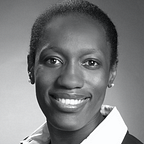Children’s surgery — engaging with the private sector to save lives
Written by: Neema Kaseje & Simon Smiles
Life-saving children's surgery:
Globally more than 1 billion children lack access to life-saving surgical care, leading to millions of deaths. The majority of these children live in emerging economies with the youngest populations. Access to life-saving children's surgery provides an opportunity for socially-inclusive, sustainable, and impactful investments for several reasons:
- To date, child-health initiatives have overlooked surgical services because policymakers believe they are too expensive. Yet the cost-effectiveness ratios of cleft lip or palate repair are comparable to those of vaccines (1).
- Unlike other Sustainable Development Goal (SDG)-related interventions, providing life- saving surgery for children is measurable in a concrete way. We can quantify the lives saved, and measure the number of children who have avoided lifelong disability.
- Inadequate access to life-saving surgery can harm children’s health and put their lives at risk. Without healthy children, countries cannot achieve multiple SDGs including zero hunger, zero poverty, reduced inequalities, environment protection, or peace, justice, and strong institutions.
Now is the time to act:
Multiple entities are working on initiatives closely related to life-saving children's surgery.
For example, the Global Financing Facility (GFF) is working with governments to improve women’s, children’s, and adolescents’ health. It focuses on high-impact but historically-underfunded areas. Access to life-saving children's surgery meets both these criteria and would be a significant addition to the GFF's work and social impact.
Let’s take another example, the partnership between the UBS Optimus Foundation, USAID, MSD for Mothers and Palladium. Together they launched a development impact bond that aims to improve the quality of maternal and newborn health in India (2). Adding further life-saving surgery services has the power to improve maternal and newborn health.
The United Nations International Children's Emergency Fund (UNICEF) also continues to fulfill its mission to care for children living in the world's toughest places. The addition of life-saving children's surgical services would be a powerful additional mechanism to support children in war - torn countries.
Private Sector Engagement:
Life-saving children's surgery represents an opportunity for private sector engagement in a historically-neglected development area. Surgery can have wide-reaching impact on multiple SDGs.
Private sector capital is crucial to achieving any of the SDGs, given the estimated USD 2.5 trillion annual funding gap (2). Although global sustainable investment assets continue to increase (total assets rose from 18.3 trillion in 2014 to 22.9 trillion in 2016), obstacles continue to hold back more rapid private sector participation (3).
(1) Lack of data, clear incentives, and the dual bottom line.
The most significant barrier is the lack of data which contributes to a lack of clear incentives and clarity on the potential dual bottom line of competitive financial returns and measurable positive impact. The typical social impact bond involves an investor providing upfront capital for the realization of public projects that generate verifiable social and environmental outputs. Data are not readily available at several points in this process, particularly the measuring of social and environmental outputs. Improved data to increase demand in socially impactful investments will require increased investments. Currently less than 1% of Official Development Assistance is spent on data collection (2, 3).
(2) Lack of connection between investors & products
An additional barrier is the lack of interactions between key players in development initiatives and the private sector. The global health and development communities have typically overlooked private capital providers as credible and reliable sources of sustainable funding, misunderstanding the private sector’s goals and missing the fact that public and private sectors have more in common when it comes to improving early-year health outcomes. Health and development for all makes business sense, and leads to increased economic growth, peace, decreased inequality, and more environmentally-conscious societies.
A lack of scalable, investible solutions has also slowed progress. Although the philanthropic sector is committing significantly to the area of socially impactful investments, investors looking for both competitive financial returns and measurable social impact have struggled. The solution to this is increased private partnerships, as exemplified by the new World Bank SDG Fund (4).
In October 2018, the World Bank launched the Partnership Fund for SDGs, with UBS as the exclusive underwriter. This solution aims to incentivize activities that strengthen SDG implementation. The US dollar-denominated sustainable development notes will provide investors with financial return exposure to the environmental, social, and governance performance of the UN Global Compact Signatories as measured by the Global Sustainability Signatories Index.
Since the SDGs were launched in January 2016, progress towards fulfilling the SDGs has been slow. The 2030 deadline looms large. Increased public-private partnerships will be crucial to plug the annual funding gaps. Furthermore, the world needs rapid and accelerated investments in high-impact initiatives, with the biggest needs in historically-neglected development areas that touch multiple SDGs. Life-saving children's surgery is one such initiative. Working together we can save lives, deliver impact, and achieve the SDGs.
Neema Kaseje, Founder & Director, Surgical Systems Research Group
Simon Smiles, Chief Investment Officer, UBS
References:
- Chao TE, Sharma K, Mandigo M, Hagander L, Resch SC, Weiser TG, Meara JG. Cost-effectiveness of surgery and its policy implications for global health: a systematic review and analysis. Lancet Glob Health. 2014
- UBS (https://www.ubs.com)
- Global Sustainable Investment Alliance.
- World Bank (https://www.worldbank.org/)
